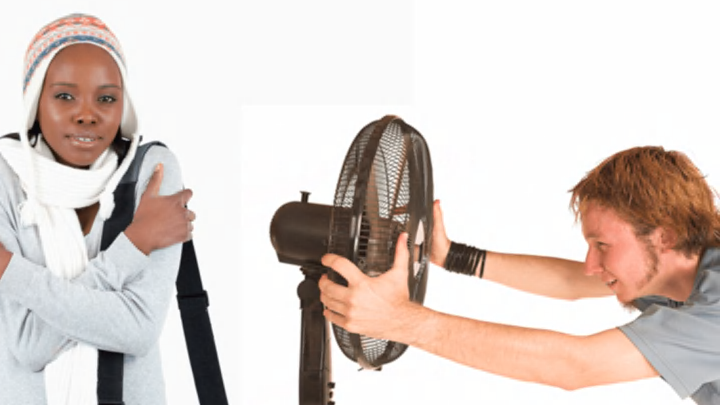Men are from Mars and insist on turning up the air conditioning; women are from Venus and always complain of being cold. In a world striving for gender equality, is there something holding us back from liberty and comfortable temperatures for all, or is it possible for everyone to compromise on where to set the thermostat?
When 19th-century physician Carl Wunderlich first compiled temperature readings from a sample size of 25,000 participants, he found that core temperature between men and women averaged out to be roughly equal around the 98.6-degree mark. Though women’s temperatures skewed the slightest bit higher than men’s, a few tenths of a degree’s worth of difference doesn’t seem to account for all those arguments couples purportedly have over whether to keep the window open or shut at night. Even accounting for fluctuations due to time of day, pregnancy, and hormone variations, differing core temperatures doesn’t seem to be the answer.
The truth that yes, women generally feel colder than men do, primarily arises from a difference skin temperature. Women, on average, are physiologically different from men in terms of their size, weight, and bodily proportions. Being smaller, a typical woman possesses a higher ratio of surface area to volume, which causes her to experience a more rapid rate of heat loss. In a one-two punch of injustice, women suffering from measurably cooler skin are also more sensitive to incremental changes in the air temperature, so that they begin to feel the cold faster than someone experiencing an equivalent drop with a higher starting skin temperature.
In a technical sense, it would be correct to say that women don’t feel temperature any differently from anyone else as a function of their sex. Controlling for physical size differences, people of all genders should experience temperature in similar ways. Women are, however, more likely to be smaller, and smaller people are more likely to be colder. So the next time you’re in an argument over the cost of heating, remember that not all temperature-sensing bodies are created equal, and adjust accordingly.
